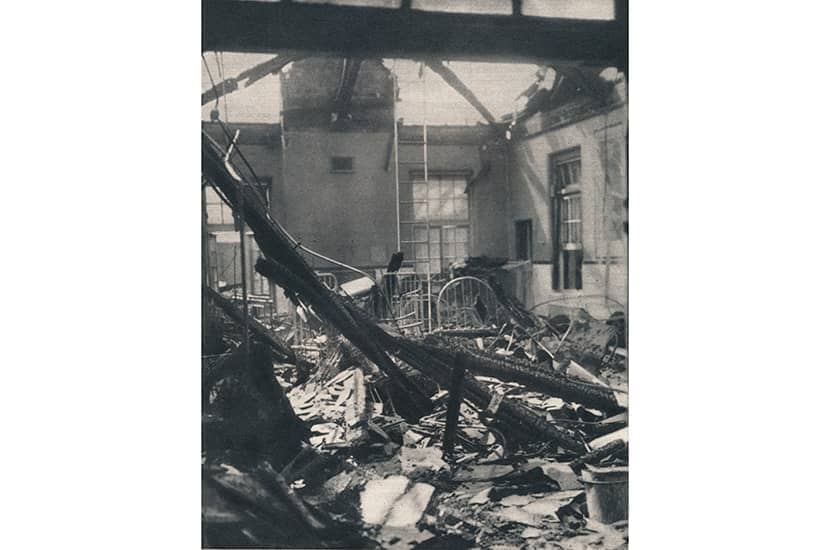Caught outside at the start of a raid in the Belfast Blitz as the incendiary bombs rain down, Audrey looks up at the sky, transfixed by its eerie beauty. She watches ‘the first magnesium flares falling, bursting into incandescent light, hanging there over the city like chandeliers’. It is the sort of thing you never forget, she thinks, ‘not in a lifetime’.
This scene in These Days, by the Northern Irish writer Lucy Caldwell, brilliantly captures familiar territory for anyone who has read about the Blitz. The awe at the peculiar beauty, the feeling that this is unforgettable and will change people forever, the desire to domesticate these undomesticated happenings (the chandeliers): all this comes up often in fiction and memoir from the period. Caldwell’s originality is to push moment-by-moment reflections into consuming thematic concerns. What is a lifetime? her novel asks, movingly and compellingly. Do we have an individual responsibility to shape our lives, and does that mean somehow being true to the kinds of intense feelings that an extreme experience such as the Blitz brings out in us?
Caldwell’s cast is an upper-middle-class family in central Belfast. The father, Philip, is a doctor, used to putting on a brave face and therefore unprepared for being overwhelmed by the traumatic sights he witnesses. The mother, Florence, is still half-consumed by the loss of a secret youthful lover. Their two daughters, Audrey and Emma, are just embarking on adulthood when war breaks out. Emma signs up as a first-aider and falls seriously in love with a female colleague whose death is overwhelming both for Emma and the reader when it happens daringly early in the narrative. Audrey has just started a career that she will soon give up when she marries the respectable fiancé she is dimly aware she does not love.
The narrative voice moves between Florence, Audrey and Emma, capturing their patterns of thought and speech with a casual eloquence that calls to mind Mrs Dalloway, especially in Florence’s sections (‘Yes, she thinks: we must each face our death alone, rise up to meet it, untangling all of the cords, all of the tiny hooks by which our souls have sought to attach themselves.’) Behind these intimate points of view there is also a grander voice – of Belfast – which finds its way into large-scale set pieces and also intimate cameos of people of every age and class. As the book progressed, I was astonished by the calm confidence with which Caldwell weaves this vast tapestry.
I did wonder at times why this novel has come to be written now. The answer may lie simply in what novels at their best do, which is to illuminate the overlooked and to take us away from any over-easy sense that we know what the big questions are. There are themes here that speak to our times: the wastefulness of war, the need not to do things just because they are the obvious things to do, the inequity of class, the uneasy relationship between Northern Ireland and the Republic (heightened in the war by the Republic’s neutrality). None of these are pressed especially hard and the book seems to delight in its own old-fashionedness. To most readers this won’t matter; what does is the sumptuousness of the prose, the evocativeness of the descriptions and the fully realised characters, all of which make this a masterly achievement.






Comments